Acrylic Partial Denture
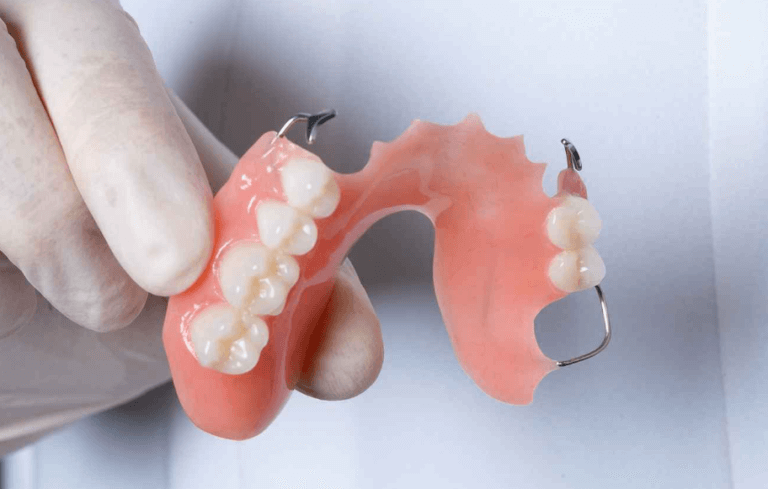
What Is An Acrylic Partial Denture?
An Acrylic Partial Denture is a removable partial dental prosthetic designed to replace one or more missing teeth while providing support to the surrounding oral structures. Crafted from a combination of high-quality acrylic resin and durable metal clasps, these dentures offer a comfortable and natural-looking solution for those seeking to regain their confident smile.
Before deciding on whether Acrylic Partial Dentures are right for you, there are some things you should know:
- Who Needs Acrylic Partial Dentures?
- What Are The Advantages Of Acrylic Partial Dentures?
- What Are The Alternative Treatments If I Do Not Choose Acrylic Partial Dentures?
- How Much Does Acrylic Partial Dentures Cost?
- What Are The Steps In The Acrylic Partial Dentures Procedure?
- Can I Have Acrylic Partial Dentures If I Am Pregnant?
- How Long Does Acrylic Partial Dentures Last?
- What Are Common Problems with Acrylic Partial Dentures?
If you have any further questions about Acrylic Partial Dentures or other dental services offered at Atlas Dental, please contact us.

Free Phone Consultation
Have questions about cosmetic dentures for missing teeth? Book a free phone consult with our Toronto dentist

5 star google reviews
Our patients love their cosmetic looking denture smile! See for yourself why patients choose Atlas Dental.

Book a denture appointment online
We make custom fitted dentures to help our patients smile confidently again.
Who Needs Acrylic Partial Dentures?
Acrylic partial dentures offer a versatile and effective solution for various dental situations, making them a popular choice for individuals who have experienced tooth loss or are about to undergo tooth extraction. If you find yourself in any of the following circumstances, you might benefit from considering acrylic partial dentures:
- Missing Teeth: When one or more teeth are missing, it can lead to difficulties in chewing, speech impediments, and a lack of confidence in your appearance. An acrylic partial denture can fill these gaps, restoring your ability to eat comfortably and speak clearly.
- Preserving Natural Teeth: Preserving the integrity of your remaining natural teeth is crucial for maintaining oral health. If you have a few missing teeth and leave the gaps untreated, it can cause the adjacent teeth to shift and move, potentially leading to alignment issues and bite problems. An acrylic partial denture prevents this movement, supporting the adjacent teeth and keeping them in their proper positions.
- Affordable Tooth Replacement: Compared to dental implants or fixed bridges, acrylic partial dentures are a more cost-effective tooth replacement option. They offer an affordable solution to replace missing teeth without compromising on functionality or aesthetics.
- Non-Candidates for Dental Implants: Some individuals may not be suitable candidates for dental implants due to factors such as inadequate bone density or certain medical conditions. In such cases, an acrylic partial denture can be an excellent alternative for restoring their smile and oral function.
- Temporary Tooth Replacement: If you are undergoing a dental treatment plan that involves multiple steps, an acrylic partial denture can serve as a temporary tooth replacement until the permanent solution, like a dental implant, can be placed.
- Improved Aesthetics: An acrylic partial denture not only restores missing teeth but also enhances the aesthetics of your smile. The prosthesis is custom-made to match the color, shape, and size of your existing teeth, creating a natural and seamless appearance.
- Boosted Self-Confidence: Regaining your smile can have a significant impact on your self-confidence and overall well-being. With an acrylic partial denture, you can confidently interact with others without worrying about hiding your missing teeth.
It’s essential to consult with a qualified dentist to determine if an acrylic partial denture is the right choice for your specific dental needs. They will conduct a comprehensive examination of your oral health, discuss your treatment goals, and help you make an informed decision about the most suitable tooth replacement option. If you have further questions about acrylic partial dentures, please contact us.
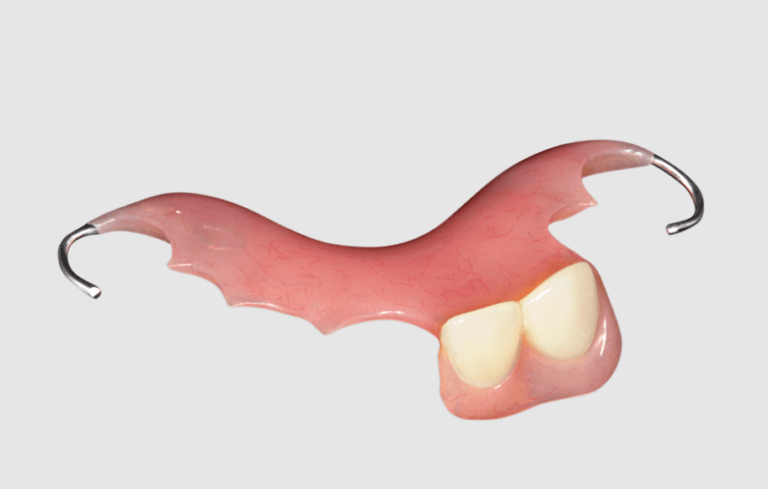
What Are The Advantages Of Acrylic Partial Dentures?
Acrylic partial dentures offer numerous advantages that make them a popular and practical choice for individuals seeking effective tooth replacement solutions:
- Natural Aesthetics: One of the most significant advantages of acrylic partial dentures is their ability to closely mimic the appearance of natural teeth and gums. The acrylic material used for the denture’s base can be color-matched to your existing gum tissue, ensuring a seamless and natural blend with your smile. Additionally, the replacement teeth are crafted to match the shape, size, and color of your remaining natural teeth, creating a smile that looks authentic and appealing.
- Comfort and Adaptability: Acrylic partial dentures are designed to fit comfortably within your mouth. Dentists take precise impressions of your oral structures to ensure a secure and snug fit. The acrylic material is lightweight, reducing the discomfort often associated with bulkier dental restorations. Over time, patients tend to adapt to their dentures, and with proper care, they can become a seamless and comfortable part of daily life.
- Cost-Effectiveness: Acrylic partial dentures are a cost-effective solution for replacing missing teeth. Compared to other alternatives like dental implants or fixed bridges, acrylic partial dentures are generally more budget-friendly. This affordability makes them accessible to a broader range of patients looking to restore their smiles without a substantial financial burden.
- Non-Invasive Procedure: Unlike dental implants, which involve surgery and implantation of metal posts into the jawbone, acrylic partial dentures are non-invasive. The process of getting acrylic partial dentures usually does not require any surgical procedures, making it a suitable choice for those who prefer a less invasive dental treatment.
- Reversible Option: Acrylic partial dentures offer a reversible solution to tooth loss. If, in the future, a patient decides to pursue a different dental restoration option, such as dental implants or fixed bridges, the acrylic partial dentures can be easily removed without causing any damage to the remaining teeth or oral tissues.
- Improved Oral Function: By filling in the gaps left by missing teeth, acrylic partial dentures restore your ability to speak clearly, chew food comfortably, and maintain proper oral function. With well-fitted dentures, you can enjoy a wide variety of foods without limitations and maintain a balanced diet for overall health.
- Prevents Further Oral Issues: Acrylic partial dentures help prevent potential oral health issues that may arise from untreated tooth loss. By keeping the remaining teeth properly aligned and preventing them from shifting, dentures contribute to maintaining good oral health and preventing jawbone deterioration.
Overall, acrylic partial dentures serve as a practical and aesthetically pleasing solution for those seeking to replace missing teeth. However, it’s essential to recognize that each individual’s oral health needs are unique. Consultation with a qualified dentist will help you understand if acrylic partial dentures are the right choice for your specific situation. If you have further questions about Acrylic Partial Dentures, please contact us.
What Are The Alternative Treatments If I Do Not Choose Acrylic Partial Dentures?
While acrylic partial dentures offer many benefits, they may not be the ideal choice for everyone. Depending on your specific dental needs, budget, and preferences, there are several alternative treatments available:
- Cast Partial Denture: Cast partial dentures are made from metal frameworks with clasps that attach to remaining natural teeth, providing stability and support. These dentures are durable and offer a more precise fit than acrylic partial dentures. However, the metal clasps might be visible when you smile, making them less aesthetically pleasing.
- Single Tooth Denture (Flipper): A single tooth denture, commonly known as a “flipper,” is designed to replace a single missing tooth. It consists of a removable acrylic tooth attached to a pink acrylic base. While flippers are affordable and quick to fabricate, they are not as secure or long-lasting as other alternatives.
- Essix Denture: An Essix denture is a clear, transparent, and removable dental appliance made from a thin plastic material. It fits snugly over your existing teeth, replacing the missing ones. Essix dentures are often used as temporary solutions and are less noticeable than traditional dentures, but they may not be as durable as other options.
- Valplast Denture: Valplast dentures are flexible and lightweight dental prosthetics made from a thermoplastic material. These dentures are designed to adapt comfortably to the shape of your mouth and are a discreet alternative to conventional acrylic or cast partial dentures. Valplast dentures are known for their natural appearance and minimal metal-free design.
- Dental Implants: Dental implants are a permanent and highly effective solution for replacing missing teeth. A dental implant is a titanium post surgically inserted into the jawbone, acting as an artificial tooth root. A crown is then attached to the implant, providing a natural-looking and functional replacement tooth. Dental implants offer the most stable and long-lasting option but may require sufficient bone density and a more extensive treatment process.
- Dental Bridges: Dental bridges are fixed restorations that bridge the gap between missing teeth. They are supported by crowns placed on the adjacent natural teeth. Bridges are a reliable option for tooth replacement, but they require modifying the neighboring teeth to accommodate the crowns.
- No Treatment: While not a recommended long-term option, some individuals choose not to pursue any dental treatment for their missing teeth. Leaving gaps in your smile can lead to dental problems over time, such as shifting teeth, bite issues, and bone loss in the jaw.
It is crucial to consult with a qualified dentist to determine the most appropriate tooth replacement option for your specific situation. They will conduct a thorough assessment of your oral health, discuss your preferences and budget, and help you make an informed decision regarding the best treatment choice for restoring your smile and oral function. If you have further questions about Acrylic Partial Dentures, please contact us.
Cost of Partial Dentures
Partial Dentures can vary widely in cost depending on several factors, including the type of partial denture, whether it is for the upper or lower jaw, the materials used, and the location of the dental practice. Therefore, depending on the type of denture you are looking for, the cost can range from $462 to $1419 plus dental lab fee. The codes relevant to dentures in the Ontario Dental Association’s Suggested Fee Guide appear as follows:
Dentures, Partial, Acrylic Base (Provisional) (With or Without Clasps). (e.g. Single Tooth Dentures, Essix Dentures)
- 52101 – Maxillary: $462 + Dental Lab Fee
- 52102 – Mandibular: $462 + Dental Lab Fee
Dentures, Partial, Polymer, Resilient Retainer. (e.g. Valplast Flexible Partial Dentures)
- 52201 – Maxillary: $678 + Dental Lab Fee
- 52202 – Mandibular: $678 + Dental Lab Fee
Dentures, Partial, Acrylic, With Metal Wrought/Cast Clasps and/or Rests. (e.g. Acrylic Partial Dentures)
- 52301 – Maxillary: $775 + Dental Lab Fee
- 52302 – Mandibular: $775 + Dental Lab Fee
Dentures, Partial, Free End, Cast Frame/Connector, Clasps and Rests. (e.g. Cast partial Dentures)
- 53101 – Maxillary: $1419 + Dental Lab Fee
- 53102 – Mandibular: $1419 + Dental Lab Fee
Dentures, Partial, Tooth-Borne, Cast Frame/Connector, Clasps and Rests. (e.g. Cast partial Dentures)
- 53201 – Maxillary: $1319 + Dental Lab Fee
- 53202 – Mandibular: $1319 + Dental Lab Fee
Partial Dentures are sometimes considered a supplementary service by dental insurance plans and may or may not be covered by your dental insurance. Be sure to find out from your dental insurance plan provider how much you are eligible for before going ahead with dental treatment. Your dentist can help you submit an predetermination to your dental insurance. Our fees are consistent with the ODA Fee Guide.
For patients without dental insurance, Atlas Dental is pleased to offer dental financing through Dentalcard. Affordable payment plans start at 7.95% for terms of 6 months to 6 years. To learn more about Dentalcard dental treatment financing, follow this link.
What Are The Steps In The Acrylic Partial Dentures Procedure?
The creation of acrylic partial dentures involves a meticulous process that ensures the dentures fit comfortably, function effectively, and blend seamlessly with your natural smile. The procedure typically involves several steps, each carefully tailored to your unique oral anatomy and needs:
- Initial Consultation: The first step is to schedule an appointment with a dentist for a thorough examination of your oral health. During this consultation, the dental professional will assess the condition of your teeth, gums, and jawbone, as well as discuss your treatment goals and preferences.
- Treatment Planning: Based on the examination results and your dental needs, the dentist will develop a personalized treatment plan. They will explain the different types of partial dentures available and help you choose the most suitable option for your situation.
- Taking Impressions: To create a custom-fit acrylic partial denture, the dentist will take precise impressions of your teeth and gums. These impressions serve as a mold for designing the denture, ensuring a comfortable and accurate fit. Please review these denture pre-visit instructions before your appointment.
- Try-In Appointment: Once the acrylic partial denture is fabricated, you will have a try-in appointment. During this visit, the dentist will check the fit, shape, and color of the denture to ensure it aligns perfectly with your natural teeth and gums. Any necessary adjustments will be made at this stage.
- Final Placement: After any adjustments are completed, your dentist will place the final acrylic partial denture. They will carefully position it in your mouth and check that it fits comfortably and securely. The dentist will also provide denture post-insertion instructions on how to insert and remove the denture properly, as well as how to care for it.
- Follow-Up Visits: After receiving your acrylic partial denture, you will have follow-up appointments to ensure that the denture fits well and functions correctly. Your dentist may make additional adjustments if needed, especially in the initial period of wearing the denture.
By following these steps and working closely with your dental professional, you can achieve a well-fitting and functional acrylic partial denture that seamlessly integrates with your natural smile. Remember that proper care and maintenance of your acrylic partial denture are crucial for ensuring its longevity and preserving your oral health. If you have further questions about acrylic partial dentures, please contact us.
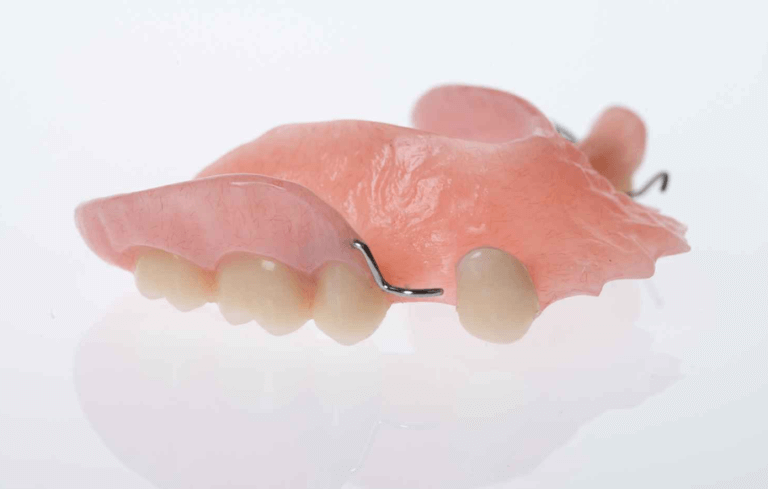
Can I Have Acrylic Partial Dentures If I Am Pregnant?
Pregnancy is a unique and special time in a woman’s life, and taking care of oral health during this period is essential for both the mother and the baby. Many dental treatments are safe during pregnancy, but certain factors need consideration when it comes to getting an acrylic partial denture. Here’s what you should know about having an acrylic partial denture if you are pregnant:
- Consultation with Your Dentist: If you are pregnant and considering an acrylic partial denture, it is crucial to inform your dentist about your pregnancy during your initial consultation. This information allows the dentist to tailor the treatment plan and choose the safest approach for your specific situation.
- Timing of Treatment: Pregnancy, particularly the first and third trimesters, can be sensitive periods for dental treatments due to potential risks involved. Elective dental procedures, such as getting an acrylic partial denture for cosmetic purposes, are often best postponed until after delivery. However, if there is a pressing need to replace missing teeth or address oral health issues, your dentist may recommend the most appropriate and safe course of action during pregnancy.
- Local Anesthetics and X-Rays: During pregnancy, avoiding unnecessary exposure to medications and X-rays is advisable. However, local anesthetics are generally considered safe for dental procedures, as long as they do not contain epinephrine. Your dentist will use an anesthetic that is safe for use during pregnancy.
- Considering Alternatives: If the timing of the acrylic partial denture treatment is not ideal during your pregnancy, your dentist may suggest temporary solutions or alternative treatments that can be safely done during this period. These temporary measures can provide relief until a more comprehensive treatment can be pursued after delivery.
- Oral Health and Pregnancy Outcomes: Research suggests that maintaining good oral health during pregnancy is linked to better pregnancy outcomes. Poor oral health has been associated with an increased risk of preterm birth and low birth weight. Thus, it is essential to prioritize your oral health and work with your dentist to develop a suitable dental care plan during pregnancy.
Having an acrylic partial denture during pregnancy is possible, but it requires careful consideration and communication with your dentist. Your dental professional will take into account your unique situation and ensure that any treatment provided is safe for both you and your developing baby. If you have further questions about acrylic partial dentures, please contact us.
How Long Does Acrylic Partial Dentures Last?
On average, acrylic partial dentures can last between 5 to 8 years, but with exceptional care and maintenance, they may even last longer. The lifespan of acrylic partial dentures can vary based on several factors:
- Quality of Materials: The quality of the materials used in the fabrication of acrylic partial dentures plays a significant role in their durability. High-quality acrylic and strong metal clasps or framework contribute to a longer-lasting denture that can withstand daily wear and tear.
- Fit and Adjustment: A well-fitted denture is less likely to experience excessive pressure on specific areas, reducing the risk of damage or discomfort. Regular visits to your dentist for adjustments and ensuring that the denture fits correctly will contribute to its longevity.
- Oral Hygiene: Proper oral hygiene is crucial for the maintenance of acrylic partial dentures. Regularly cleaning the denture with a soft brush and mild denture cleaner helps prevent bacterial buildup, stains, and odors. Additionally, maintaining good oral hygiene for your remaining natural teeth and gums will positively impact the lifespan of your denture.
- Avoiding Harmful Habits: Avoid habits like chewing on hard objects, using the denture as a tool, or biting down on ice, as these actions can lead to damage or fractures in the denture.
- Bone Resorption: Over time, bone resorption (the gradual loss of jawbone density) can occur, affecting the fit of the denture. Changes in the shape of the jawbone may necessitate adjustments or the creation of a new denture for an optimal fit.
- Proper Storage: When not wearing your acrylic partial dentures, it is essential to store them properly. Dentures should be kept in a denture container filled with water or a denture-soaking solution to prevent warping and maintain their shape.
- Normal Wear and Tear: With regular use, dentures will experience normal wear and tear. While they are designed to withstand daily activities like eating and speaking, over time, the surfaces of the artificial teeth may wear down, requiring occasional replacement.
It is important to note that as the denture ages and the natural changes in your mouth occur, periodic adjustments or replacements may be necessary to maintain a proper fit and functionality. If you have further questions about Acrylic Partial Dentures, please contact us.
What Are Common Problems with Acrylic Partial Dentures?
Acrylic partial dentures are a reliable and cost-effective solution for replacing missing teeth. However, like any dental restoration, they may encounter some issues over time. Understanding the potential problems that can arise with acrylic partial dentures can help you address them promptly and maintain the longevity and functionality of your dentures. Here are some common problems to be aware of:
- Sore Spots or Discomfort: When you first receive your acrylic partial dentures, you may experience some sore spots or discomfort as your mouth adjusts to the new prosthetic. This is normal during the initial adaptation period. However, if the discomfort persists or intensifies, it may indicate an ill-fitting denture that requires adjustment by your dentist.
- Loose Fit: Over time, changes in the shape of your mouth, especially jawbone resorption, can cause your denture to become loose or ill-fitting. An improper fit can lead to irritation, difficulty chewing, and even sore spots. Regular dental check-ups are essential for assessing the fit of your denture and making necessary adjustments.
- Fractures or Breaks: Accidents or excessive force, such as dropping the denture, can lead to fractures or breaks in the acrylic or artificial teeth. Avoid biting on hard objects or using the denture as a tool to prevent damage. If your denture sustains any fractures, consult your dentist for repair or replacement.
- Wear and Tear: With regular use, the artificial teeth in your denture may experience normal wear and tear. Over time, the surfaces of the teeth can become worn down, affecting the denture’s ability to function effectively. In such cases, your dentist may recommend replacing the artificial teeth or the entire denture, if necessary.
- Discoloration or Staining: Although acrylic is relatively stain-resistant, your denture may still develop minor discoloration over time, especially if not cleaned properly. Regularly cleaning your denture with a mild denture cleaner and maintaining good oral hygiene can help prevent significant discoloration.
- Bad Breath or Odor: Failing to clean your denture regularly can result in bacterial buildup, leading to bad breath or an unpleasant odor. Proper denture cleaning and storage are essential to maintain fresh breath and oral health.
- Allergic Reactions: In rare cases, some individuals may experience allergic reactions to the materials used in the denture. If you notice any unusual symptoms, such as oral irritation, rashes, or swelling, consult your dentist immediately.
- Clasp Discomfort: For those with cast metal partial dentures, the metal clasps that secure the denture to adjacent teeth may cause discomfort or irritation. Regular adjustments and proper positioning of the clasps can help alleviate this issue.
Remember that any problems with your acrylic partial dentures should be addressed promptly by your dentist. Regular dental check-ups are essential to monitor the condition of your denture and ensure it continues to function properly. If you encounter any discomfort or notice any changes in the fit or performance of your denture, do not hesitate to seek professional advice from your dentist to address the issue and maintain the comfort and longevity of your acrylic partial dentures. If you have further questions about Acrylic Partial Dentures, please contact us.
We also think you’ll like…
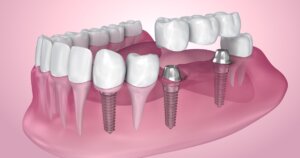
Dental Implant Crown
Dental Implant Crown What Is A Dental Implant Crown? A Dental Implant Crown is a crucial component of a dental implant, which is a permanent
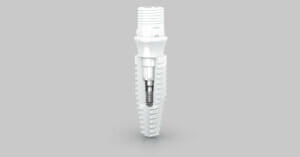
Zirconia Dental Implants
Zirconia Dental Implants What Are Zirconia Dental Implants? Zirconia dental implants are an alternative to traditional titanium dental implants for replacing missing teeth. Unlike titanium
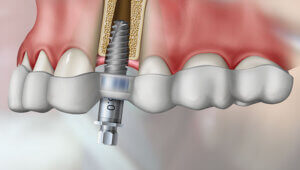
Computer Guided Dental Implant Surgery
Computer Guided Dental Implant Surgery What Is Computer Guided Dental Implant Surgery? Computer guided dental implant surgery is a specialized technique that employs advanced computer
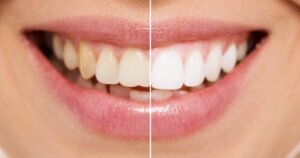
Smile Makeover
Smile Makeover What Is a Smile Makeover? A confident smile can brighten up a room and leave a lasting impression. It is a reflection of
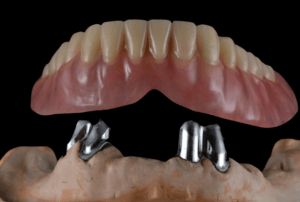
Tooth Supported Overdenture
Tooth Supported Overdenture What Is A Tooth Supported Overdenture? A Tooth Supported Overdenture is a type of removable complete denture prosthesis that rests over the
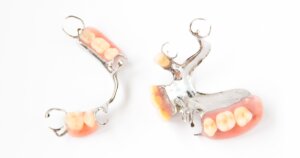
Denture Reline
Denture Reline What Is A Denture Reline? As time goes by, Dentures, the removable prosthetic teeth used to replace missing teeth, can start to lose

